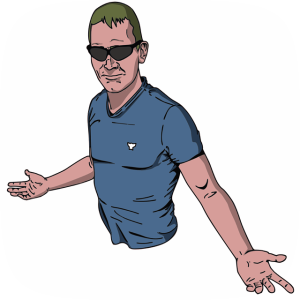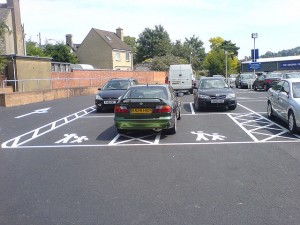I don’t know! / How should I know? [Dutch phrase of the week] ![]()
 “Weet ik veel” is a phrase that is used a lot by youth in the sense of “I don’t care”, “I don’t know” , or “how am I supposed to know”. Literally, it can be translated by “do I know a lot” or ” I know a lot”. Most people use it when they are getting a little bit annoyed by an event of a question. It’s quite an informal expression so don’t use it to your boss or people you don’t know very well.
“Weet ik veel” is a phrase that is used a lot by youth in the sense of “I don’t care”, “I don’t know” , or “how am I supposed to know”. Literally, it can be translated by “do I know a lot” or ” I know a lot”. Most people use it when they are getting a little bit annoyed by an event of a question. It’s quite an informal expression so don’t use it to your boss or people you don’t know very well.
Examples:
– “<Leraar:> Hoe schrijf je jouw naam in het Arabisch?” “<Leerling:> Weet ik veel!”
(“<Teacher:> How do you write your name in Arabic?” “<Student:> How am I supposed to know?” )
– “Wil je dat McCain wint of ben je voor Obama? ” Weet ik veel, ik weet niks van politiek.”
(“Do you want McCain to win or are you in favour of Obama?” “I don’t know, I don’t know anything about politics.” Lit. “…, I know nothing of politics.”)
– “Hij zegt dat ik het geheugen van de computer moet vergroten maar weet ik veel hoe dat moet!”
(“He tells me to increase the computer’s memory but how should I know how to do that!”)
– “Weet ik veel hoeveel vitaminen ik moet eten op een dag, ik ben toch geen dokter!”
(“How should I know how many vitamins I should eat every day, I’m not a doctor, am I!”)
Related words:
– Weten: to know [verb] [knew, known].
– Veel: much, a lot [adverb/adjective].
– Weinig: little, not a lot [adverb/adjective].
– Niks: nothing [adverb].




 This phrase is used when you convince yourself that you shouldn’t care, don’t want to care, or just don’t care when making a decision.
This phrase is used when you convince yourself that you shouldn’t care, don’t want to care, or just don’t care when making a decision.